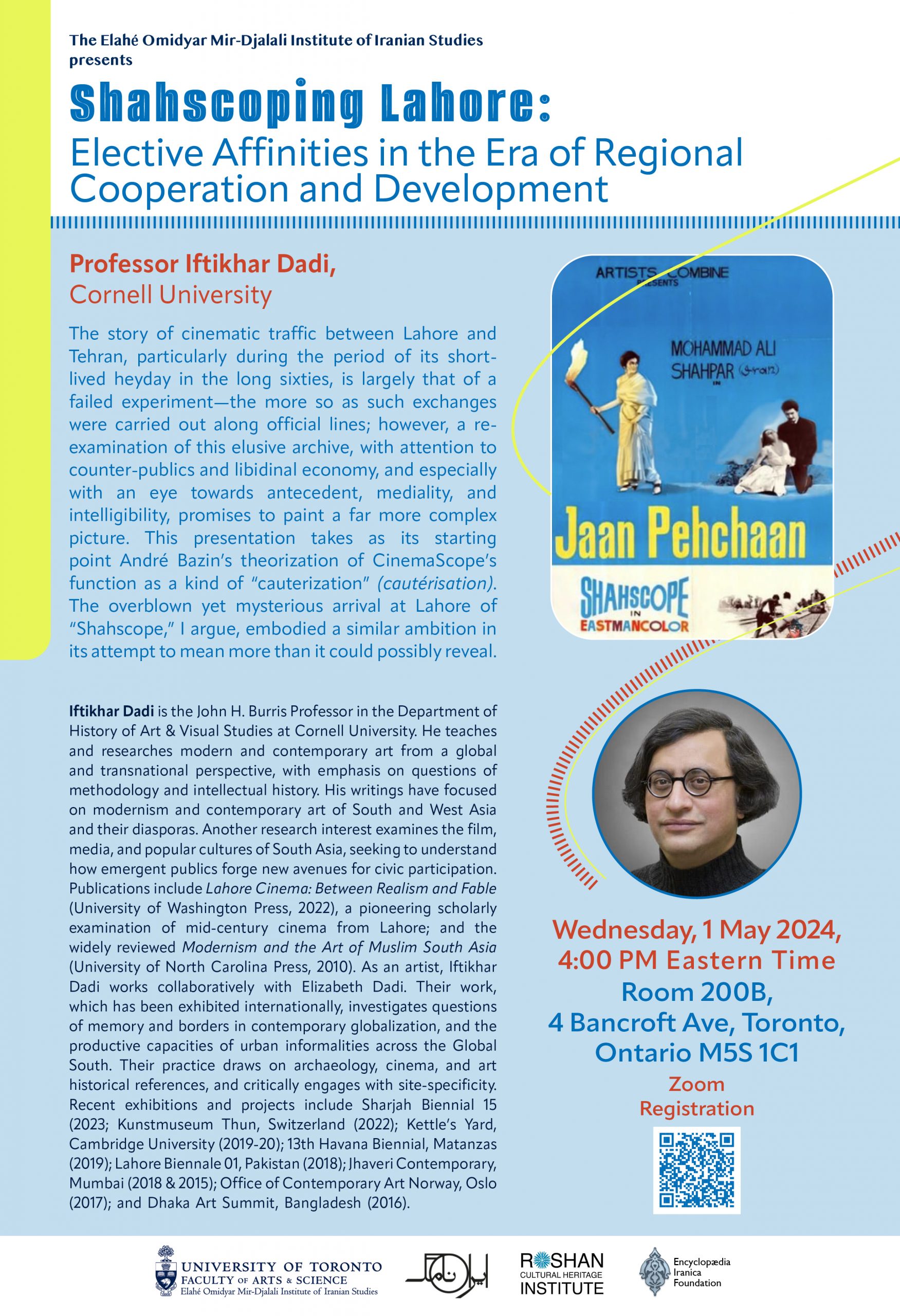

The Elahé Omidyar Mir-Djalali Institute of Iranian Studies
presents:
Shahscoping Lahore:
Elective Affinities in the Era of Regional Cooperation and Development
Prof. Iftikhar Dadi (Cornell University)
Wednesday, May 1, 2024 4 pm Eastern Time (Canada & US)
Location for In-Person Attendance:
Rm 200B, 4 Bancroft Ave, Toronto, Ontario M5S 1C1
Zoom Meeting Registration:
https://utoronto.zoom.us/meeting/register/tZwvc-6urj8jHtxML4vN6PnPn2va6-I0zsNl
After registering, you will receive a confirmation email containing information about joining the meeting.
The story of cinematic traffic between Lahore and Tehran, particularly during the period of its short-lived heyday in the long sixties, is largely that of a failed experiment—the more so as such exchanges were carried out along official lines; however, a re-examination of this elusive archive, with attention to counter-publics and libidinal economy, and especially with an eye towards antecedent, mediality, and intelligibility, promises to paint a far more complex picture. This presentation takes as its starting point André Bazin’s theorization of CinemaScope’s function as a kind of “cauterization” (cautérisation). The overblown yet mysterious arrival at Lahore of “Shahscope,” I argue, embodied a similar ambition in its attempt to mean more than it could possibly reveal.
Iftikhar Dadi is the John H. Burris Professor in the Department of History of Art & Visual Studies at Cornell University. He teaches and researches modern and contemporary art from a global and transnational perspective, with emphasis on questions of methodology and intellectual history. His writings have focused on modernism and contemporary art of South and West Asia and their diasporas. Another research interest examines the film, media, and popular cultures of South Asia, seeking to understand how emergent publics forge new avenues for civic participation. Publications include Lahore Cinema: Between Realism and Fable (University of Washington Press, 2022), a pioneering scholarly examination of mid-century cinema from Lahore; and the widely reviewed Modernism and the Art of Muslim South Asia (University of North Carolina Press, 2010). As an artist, Iftikhar Dadi works collaboratively with Elizabeth Dadi. Their work, which has been exhibited internationally, investigates questions of memory and borders in contemporary globalization, and the productive capacities of urban informalities across the Global South. Their practice draws on archaeology, cinema, and art historical references, and critically engages with site-specificity. Recent exhibitions and projects include Sharjah Biennial 15 (2023); Kunstmuseum Thun, Switzerland (2022); Kettle’s Yard, Cambridge University (2019-20); 13th Havana Biennial, Matanzas (2019); Lahore Biennale 01, Pakistan (2018); Jhaveri Contemporary, Mumbai (2018 & 2015); Office of Contemporary Art Norway, Oslo (2017); and Dhaka Art Summit, Bangladesh (2016).